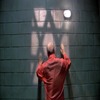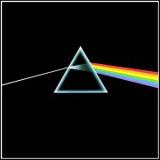Funded by Mr. Klingenstein, researchers from the National Association of Scholars studied speeches by Bowdoin presidents and deans, formal statements of the college's principles, official faculty reports and notes of faculty meetings, academic course lists and syllabi, books and articles by professors, the archive of the Bowdoin Orient newspaper and more. They analyzed the school's history back to its founding in 1794, focusing on the past 45 years—during which, they argue, Bowdoin's character changed dramatically for the worse.
Published Wednesday, the report demonstrates how Bowdoin has become an intellectual monoculture dedicated above all to identity politics....
The Klingenstein report nicely captures the illiberal or fallacious aspects of this campus doctrine, but the paper’s true contribution is in recording some of its absurd manifestations at Bowdoin. For example, the college has “no curricular requirements that center on the American founding or the history of the nation.” Even history majors aren’t required to take a single course in American history. In the History Department, no course is devoted to American political, military, diplomatic or intellectual history—the only ones available are organized around some aspect of race, class, gender or sexuality.
One of the few requirements is that Bowdoin students take a yearlong freshman seminar. Some of the 37 seminars offered this year: “Affirmative Action and U.S. Society,” “Fictions of Freedom,” “Racism,” “Queer Gardens” (which “examines the work of gay and lesbian gardeners and traces how marginal identities find expression in specific garden spaces”), “Sexual Life of Colonialism” and “Modern Western Prostitutes.”
Regarding Bowdoin professors, the report estimates that “four or five out of approximately 182 full-time faculty members might be described as politically conservative.” In the 2012 election cycle, 100% of faculty donations went to President Obama.




 Reply With Quote
Reply With Quote










